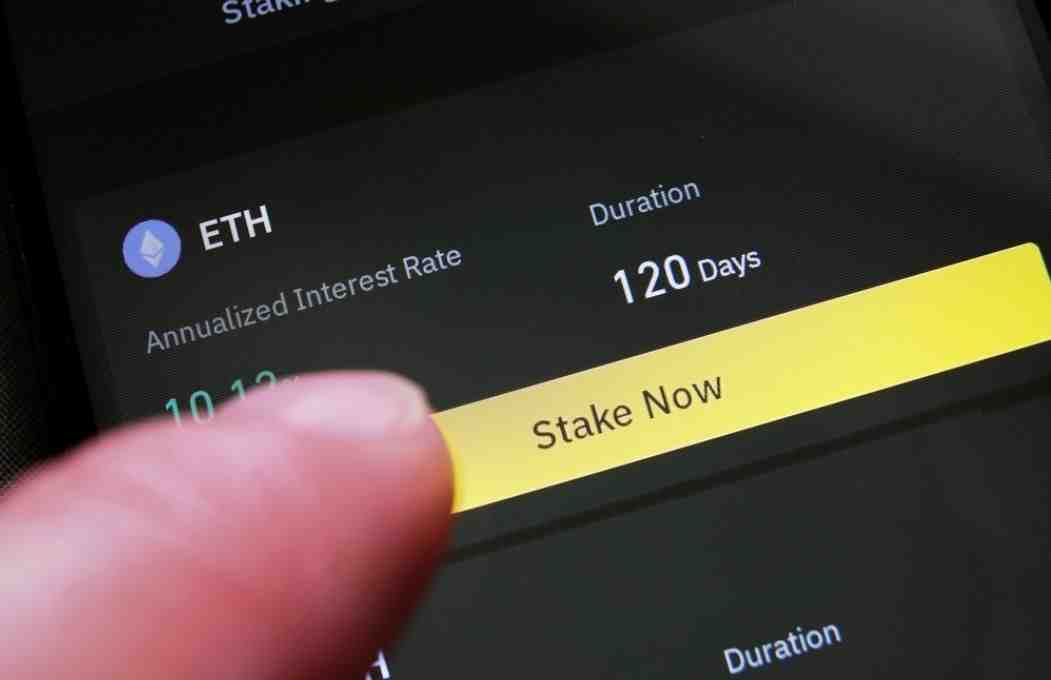Ethereum Spot ETFs: Staking, Dividends & More
As you may have noticed, conversations about Ether Spot ETFs are becoming increasingly frequent, with an anticipation of their upcoming launch in the US. It's worth noting that these ETFs have already been launched in Canada and Europe, providing us with valuable insight to explore their implications for the broader cryptocurrency market and anticipate their impact upon entering the US market.
In this article, we aim to do just that. We'll begin by briefly explaining what Ethereum Spot ETFs are, highlighting some key differences from Bitcoin. More importantly, we'll delve into the existing offerings, focusing specifically on Spot ETH ETFs launched in other countries. We'll examine various issuers and their offerings to uncover primary differences, such as the potential for staking rewards, explore the implementation of dividends, and clarify the precise mechanisms involved. But before diving into these details, let's start with the basic definitions and build our understanding from there.
What are Ethereum Exchange Traded Funds (ETFs)?
Ethereum spot ETFs are investment vehicles that allow you to gain exposure to Ethereum without directly owning the cryptocurrency. Unlike futures-based ETFs, which derive value from contracts, spot ETFs hold and secure actual ETH tokens. So, investors buy shares in these funds rather than purchasing Ethereum directly from cryptocurrency exchanges.
The ETFs mirror the real-time market price of Ethereum, ensuring that the ETF's value directly correlates with it. As the market price of ETH fluctuates, the value of the ETF follows suit, providing investors with exposure to Ethereum without the complexities of managing private keys or ensuring wallet security. By opting for this investment vehicle, investors can diversify their portfolios beyond simply holding ETH and participate in the crypto market while benefiting from professional management and liquidity.
Futures vs Spot ETFs
There are two types of ETFs: Spot Ethereum ETFs, which we just mentioned, and Futures-Based Ethereum ETFs. These funds do not directly invest in Ethereum but instead purchase Ethereum futures contracts traded on platforms such as the NASDAQ. They operate by tracking the performance of these futures contracts and have been available since October 2021.

Ethereum vs. Bitcoin: Key Differences
Let's briefly review the two largest cryptocurrencies, focusing on the characteristics most relevant to their potential function, performance, and impact within an ETF market. We have a more in-depth comparison between Bitcoin & Ethereum if you were looking at that.
Bitcoin is the cornerstone of the cryptocurrency market, often likened to digital gold for its inherent scarcity and strong store-of-value properties. With a capped supply of 21 million coins, it operates on a decentralised network, allowing for peer-to-peer transactions without the need for central authorities like banks or governments. This decentralised nature not only ensures resistance to censorship and manipulation but also positions Bitcoin as a reliable hedge against inflation and economic uncertainty.
Investors are drawn to Bitcoin's stability and proven track record, mirroring the characteristics of traditional assets like gold. It remains a cornerstone of the digital economy, offering a secure and decentralised alternative to traditional financial systems.
In contrast, Ethereum presented a paradigm shift in the cryptocurrency space, emphasising versatility and innovation beyond mere currency. At its core, Ethereum's uniqueness stems from its smart contract functionality, enabling the creation of decentralised applications (DApps) that extend far beyond simple transactions. This flexibility positions Ethereum as a platform for various use cases, from decentralised finance (DeFi) and non-fungible tokens (NFTs) to gaming applications and tokenization.
Ethereum's ecosystem has a vibrant community of developers and entrepreneurs, driving innovation and pushing the boundaries of what's possible. While Bitcoin may excel as a store of value, Ethereum's utility extends beyond investment considerations, offering developers opportunities to build decentralised solutions to real-world problems. However, Ethereum faces its own set of challenges, including scalability issues and higher transaction fees.
This is just a high level and we have a more comprehensive breakdown of Ethereum vs. Bitcoin, but it’s quite clear that Ethereum ETFs are not as straightforward as following the Spot BTC ETF template. There's much more to consider, so let's dive deeper and compare what we currently know about BTC ETFs and ETH ETFs.

Ethereum ETFs
- Focus on Innovation and Technology: Ethereum ETFs represent more than just a cryptocurrency investment; they embody a stake in the digital revolution itself. Rooted in Ethereum's ecosystem of dApps and smart contracts, these ETFs merge finance with innovation, appealing to investors intrigued by blockchain's potential beyond traditional currency.
- Diverse Use Cases and Volatility: Ethereum's value is closely tied to the adoption and expansion of DApps across various sectors, such as finance and gaming. Metcalfe’s Law underscores Ethereum's allure, as each new DApp and user can exponentially influence its value. This diversity of use cases adds an enticing dimension to Ethereum ETFs' investment appeal.
Bitcoin ETFs
- Store of Value and Market Sentiment: Bitcoin ETFs primarily attract investors seeking a digital store of value or a hedge against inflation. Market sentiment, institutional adoption, and macroeconomic factors significantly influence Bitcoin's price and its associated ETFs. Unlike Ethereum, technological shifts have a lesser impact on Bitcoin.
- Consistency and Recognition: Bitcoin is generally perceived as more stable within the broader crypto market despite inherent fluctuations. This stability is rooted in its status as the first cryptocurrency and widespread recognition. As a result, Bitcoin ETFs may appeal to investors seeking exposure to cryptocurrency through a vehicle with relatively more predictable market dynamics, leveraging Bitcoin's solid reputation and liquidity.
Comparative Analysis
Investment Goals and Risk Appetite: An investor's choice between Ethereum ETFs and Bitcoin ETFs hinges on their risk appetite and investment objectives. Ethereum ETFs offer a gateway into a rapidly evolving technology platform with potentially higher volatility and rewards, suitable for those interested in blockchain technology's future applications. Conversely, Bitcoin ETFs provide exposure to a more established and recognized digital asset, appealing to investors seeking stability within the cryptocurrency space.

Current Ethereum Spot ETF Offerings
In this section, we'll explore a few Ethereum Spot ETFs currently being invested in to assess their potential impact and consider potential implications for the US market. Canada is a trailblazer in embracing crypto innovation, offering a framework that provides valuable insights into how similar ETFs might fare in other jurisdictions.
While they share many similarities, they also have minor yet significant differences. A thorough comparison can provide valuable insights if you're considering ETH ETFs, so expect some repetition. For the most current information, please visit the corresponding company website for up-to-date figures.
CI Galaxy Ethereum ETF
The CI Galaxy Ethereum ETF entered the market on April 16, 2021. Presently, it oversees assets amounting to $289.5 million, accompanied by a management fee of 0.40% and a management expense ratio of 0.81%. Assigned a high-risk rating, the ETF dispenses distributions annually, though with a distribution yield of 0%. As of the latest update, the stock price is recorded at $16.13, delivering a year-to-date return of 0.84%.
CI offers an Ether ETF to Canadians in Canadian and US dollars, with the latter requiring purchase on the US side of investment accounts. The Canadian dollar series is unhedged and susceptible to fluctuations between the US dollar and the Canadian dollar. ETHX operates as a straightforward Ether fund, tracking the cryptocurrency's price movements minus any associated fund fees.
Expectedly, the fund adopts a secure approach by storing the underlying Ether in cold storage, safeguarding it from potential hackers. ETHX is considered the most cost-effective Ethereum ETF option for Canadians.
Purpose Ether ETF
The Purpose Ether ETF was launched on April 16, 2021. Currently, the ETF manages assets totaling $452.4 million, with a management fee of 1.00% and a management expense ratio of 1.48%. Classified with a high-risk rating, the ETFs distribute annually with an average distribution yield of 10.7%.
Purpose offers a comprehensive Ether ETF, trading under the ticker ETHH, also available in various series including hedged, unhedged, US dollar, and carbon offset. ETHH operates as a straightforward Ethereum fund, mirroring the cryptocurrency's price movements while considering associated fees. Investors seeking exposure to the US dollar version of the fund also need to purchase it through US accounts from Canada, while the currency-hedged version mitigates the impact of currency fluctuations between the US dollar and the Canadian dollar. Notably, Purpose's Ether ETF stands out for its carbon offset series, utilising generated fees to counterbalance the carbon emissions associated with the fund.
Purpose's Ether ETF also implements cold storage for its Ether holdings, ensuring security against potential cyber threats. Despite its sizable assets, it is notably pricier compared to CI's Ethereum ETF. However, for investors prioritising responsible investing and seeking access to the carbon offset series, Purpose's Ethereum ETF presents a compelling choice.
Evolve Ether ETF
Evolve's Ether ETF debuted on April 19, 2021. Currently managing assets worth $45.1 million, the ETF incurs a management fee of 0.75% and a management expense ratio of 1.23%. The ETF's stock price is $12.25, marking a year-to-date return of -0.57%.
Evolve is a notable contender in Canada's Ethereum ETF market. Its ETHR ETF is also available in both Canadian dollar unhedged and US dollar series, with the latter suitable for inclusion in US investment accounts. Similar to CI Galaxy’s ETF, fluctuations between the US and Canadian dollars affect the unhedged series. Functioning as a basic Ether fund, ETHR mirrors the cryptocurrency's price movements, albeit with fees. Employing cold storage for security, like other ETFs, ensures safe cryptocurrency storage. Despite its small asset base, ETHR carries higher expenses than CI's Ether fund, making it less competitive.
3iQ CoinShares Ether ETF
3iQ CoinShares Ether ETF was introduced on April 19, 2021. Currently it manages assets valued at $28.8 million, the ETF incurs a management fee of 1.00% and a management expense ratio of 1.25%. It maintains a stock price of $14.11.
3iQ ETHQ Ether fund also tracks the Ether's price movements. Available in the unhedged Canadian dollar and US dollar series, the latter must also be purchased via US investment accounts. By assets under management, ETHQ is the smallest Ether ETF in Canada and ranks as the second most expensive option.
Is Staking ETH ETFs a thing?
Let's examine the framework established by Canada and the Canadian Securities Administrators (CSA) for crypto ETFs, focusing on the mechanics of staking and dividend yield within this context. Although it’s not exactly the US, this exploration could provide valuable insights into two key aspects: the feasibility and the practical implementation strategies.

Staking Within a Spot ETH ETF
Based on the information provided in the CSA Staff Notice 81-336 Guidance on Crypto Asset Investment Funds, it appears that staking is allowed in a Canadian Ethereum ETF, but there are several important considerations and regulatory requirements that must be met:
- Assessment of Securities Issuance: Staking may involve the issuance of a security or derivative, depending on how it is conducted. Therefore, Public Crypto Asset Funds interested in staking crypto assets held in their portfolios are expected to have established policies and procedures to assess whether any staking activity involves the issuance of a security and/or derivative.
- Compliance with Regulations: Public Crypto Asset Funds must comply with securities laws and regulations, including prohibitions related to lending and other investment practices. Staking activities should not violate these regulations.
- Liquidity Considerations: Staking activities may impact the liquidity of the fund's portfolio assets. Funds are expected to conduct appropriate due diligence to assess the impact on liquidity and comply with restrictions on illiquid assets.
- Engagement of Validators: If staking is permitted, the fund is expected to engage a third party to act as a validator ("staking as a service") rather than acting as its own validator. Validators must be proficient and experienced in staking crypto assets, and written agreements should be established between the fund and the validators.
- Due Diligence and Compliance: Investment Fund Managers (IFMs) of Public Crypto Asset Funds are expected to engage in their own due diligence to ensure that proposed staking activities comply with applicable securities legislation.
Given the many hoops to jump through, have any of these issuers actually offered staking rewards to clients? The answer is YES.
The Ether Fund, managed by 3iQ Digital Asset Management, has begun staking Ethereum. Through staking, the fund earns rewards in the form of ETH, which is reflected in its net asset value (NAV) through accretive yield. The Ethereum network staking yield sits around 4%. To celebrate this milestone, 3iQ waived the management fee for the for almost a year. Effective since October 20, 2023, the fund traded as the “3iQ Ether Staking ETF.”
Fidelity Ethereum Fund, although not yet launched, has filed an application for a spot Ethereum ETF that includes staking functionality.
Dividends and the Mechanics Behind Them
It's worth noting that certain funds provide dividends. Let's explore how dividends are obtained from Purpose's Ether Yield ETF, which employs a distinctive approach involving writing covered calls on the underlying assets
ETFs typically function by investing in a particular asset and issuing shares on a public exchange. This allows investors to buy and hold portions of the asset, similar to owning stocks in a company. However, what sets these dividend-paying crypto ETFs apart is their use of derivatives on the underlying assets to generate passive income.
The management team behind it writes covered calls on its Bitcoin and Ethereum holdings. This involves offering traders the option to buy BTC and ETH at a predetermined strike price in exchange for a fixed fee collected by the ETF management company.
Traders purchase these call options with the aim of amplifying their capital gains if the price of Bitcoin or Ethereum experiences significant increases. However, they are obligated to pay the fixed fee regardless of the movement of the underlying asset prices. This strategy allows the ETF management company to generate safe and reliable returns on otherwise volatile assets.
Purpose Investments anticipates that this strategy can generate annual yields of 8-10%, which helps offset potential losses during market downturns while providing some returns during market upswings. These dividend-paying crypto ETFs are particularly suitable for investors seeking less volatility and safer returns in the digital assets sector. While the exact yield in any given year cannot be predicted, Purpose Investments expects the yield to remain elevated due to significant demand for crypto derivatives. This high yield justifies the implementation of a monthly dividend payout structure.
Final Thoughts
Exploring existing Ethereum spot ETFs provides valuable perspective. While much attention is understandably focused on developments in the US, it's crucial not to overlook insights from other regions. These global perspectives offer insights into the space's direction and reveal significant opportunities for those interested in entering the crypto market through ETFs.
Ultimately, as previously discussed, the introduction of a Spot ETF for Ethereum holds significance due to its inherent versatility compared to Bitcoin. While Ethereum's ecosystem may be more complicated, the potential benefits outweigh the challenges. For example, a key advantage of adding an Ether spot ETF is portfolio diversification, which is often overlooked. In a volatile asset class like cryptocurrency, diversifying investments can mitigate risk - essentially, don’t put all your eggs into Bitcoin.
With that in mind, as the market evolves, we could see the introduction of Spot ETFs for other cryptocurrencies like Solana — which has already been mentioned a few times. As long as we proceed cautiously and move one step at a time to avoid potential pitfalls, ETFs are and will continue to be a good thing for the space.
Frequently Asked Questions
An Ethereum Spot ETF is an investment vehicle that allows investors to gain exposure to Ethereum without directly owning the cryptocurrency. Unlike futures-based ETFs, which derive value from contracts, spot ETFs hold and secure actual ETH tokens. Investors buy shares in these funds rather than purchasing Ethereum directly from cryptocurrency exchanges.
Ethereum Spot ETFs focus on providing exposure to the Ethereum cryptocurrency, which offers smart contract functionality and supports decentralized applications (DApps) beyond simple transactions. In contrast, Bitcoin ETFs primarily attract investors seeking a digital store of value or a hedge against inflation. Bitcoin is often perceived as more stable within the broader crypto market due to its recognition and widespread adoption.
Investing in Ethereum Spot ETFs allows investors to diversify their portfolios beyond traditional assets like stocks and bonds. It provides exposure to the potential growth of the Ethereum ecosystem, including decentralized finance (DeFi), non-fungible tokens (NFTs), and gaming applications, without the complexities of managing private keys or wallet security.
Some Ethereum Spot ETFs may offer staking rewards to investors. Staking involves participating in the Ethereum network by locking up ETH tokens to support its operations and earn rewards. ETFs that engage in staking may distribute these rewards to investors as additional returns.
Investors interested in Ethereum Spot ETFs should consider factors such as the management fee, expense ratio, regulatory framework, and investment strategy of the ETF. They should also assess their risk tolerance, investment goals, and the potential benefits of diversifying their portfolios with exposure to Ethereum.
Disclaimer: These are the writer’s opinions and should not be considered investment advice. Readers should do their own research.

